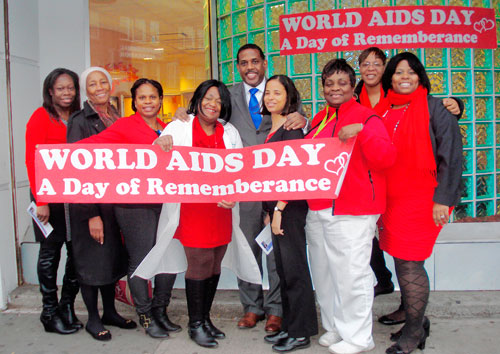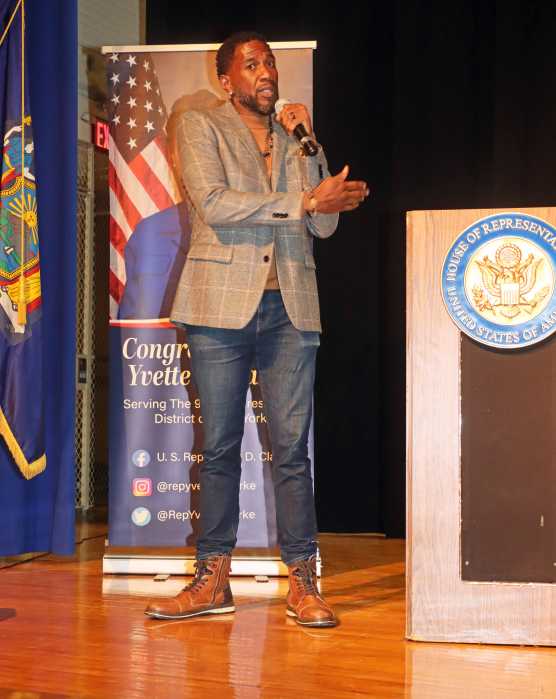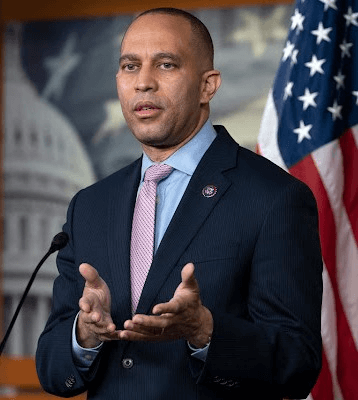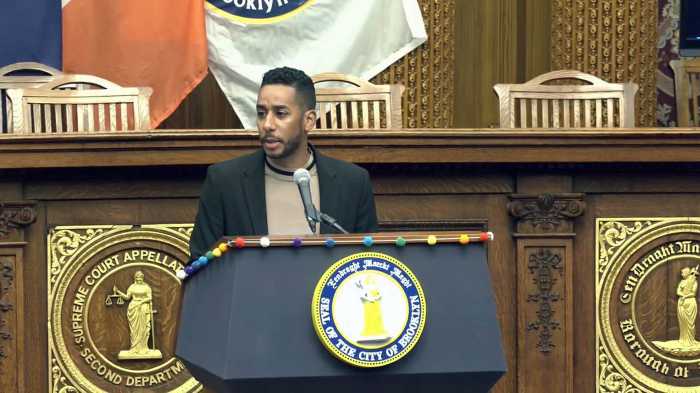In commemorating World AIDS Day on Dec. 1, Lutheran Family Health Centers’ (LFHC) Caribbean-American site, in conjunction with the Caribbean Women’s Health Association (CWHA), gathered for a special march and event to raise HIV/AIDS awareness and to educate the community on prevention.
The site’s staffers also tied red ribbons to nearby trees. The special event was themed “Focus, Partner and Achieve: An AIDS Free Generation!”
The group’s procession made its way from East 34th Street to Nostrand Avenue in Brooklyn.
Participants distributed information packets and commemorative red ribbons and pins.
At the end of the march, CWHA’s speakers shared information to patients at LFHC’s Caribbean-American site about HIV/AIDS prevention and personal experiences treating and living with HIV and AIDS.
LFHC’s Caribbean-American site is located at 3414 Church Avenue in Brooklyn.
New York State Sen. Kevin S. Parker, who also attended the program, spoke of a loved one who passed away because of AIDS and strongly emphasized the importance of HIV/AIDS prevention and awareness.
“On World AIDS Day, we want to make sure there’s an awareness of HIV/AIDS,” said Parker, who represents the 21st Senatorial District in Brooklyn. “It [HIV/AIDS] can be eliminated starting with getting to know our status.”
On World AIDS Day on Monday, U.N. Secretary-General Ban Ki-moon said ending the epidemic by 2030 requires a “comprehensive approach that includes social justice, the democratization of science, gender equity, and a people-centered approach to health.
He spotlighted the gap in prevention and treatment that persist among regions and people.
Ban said in his message to mark the Day that, with some 35 million people worldwide living with HIV – 19 million of whom do not even know they have the virus – “tremendous” gains made over the years in fighting the virus remain very fragile.
“The legacy of the AIDS response is already apparent as we confront Ebola in West Africa. We know that medical systems alone are not enough to provide robust health care,” said Ban as events kicked off across the globe to mark World AIDS Day, launched in 1988 as the first-ever global health day.
“[These] are all lessons we have learned in the AIDS response that are being applied across the board, including in our discussions on the post-2015 development agenda,” said the U.N. chief, commending the commitment of world leaders to end AIDS epidemic by 2030.
Boosting that momentum, mayors from around the world came together in Paris, France on Monday to sign a declaration to eradicate AIDS in their cities and commit to the “Fast-Track” campaign.
In signing the Paris Declaration, the mayors vowed to abide by a set of targets to achieve the UNAIDS 90-90-90 targets by 2020.
The 90-90-90 campaign aims to get 90 per cent of people living with HIV to know their HIV status; 90 per cent of people who know their HIV-positive status on treatment; and 90 per cent of people on treatment with suppressed viral loads, keeping them healthy and reducing the risk of HIV transmission.
“We must leave no one behind,” said Ban referring to regions and people who may not have access to prevention, treatment and support services.
“Cities all over the world are key players that can fast-track the response in order to ultimately end the AIDS epidemic,” said Anne Hidalgo, Mayor of Paris at the Declaration signing, adding that “our duty is above all a human one.”
During Monday’s event, UNAIDS released a report on HIV in cities which outlines the important role that urban areas will play in ending the AIDS epidemic by 2030.
The Cities Report shows how cities and urban areas are particularly affected by HIV, with the 200 cities most affected by the epidemic estimated to account for more than a quarter of the 35 million people living with HIV around the world. In sub-Saharan Africa, 45 per cent of people living with HIV reside in cities.
“Cities provide read, flexible and creative platforms that can contribute to ending the AIDS epidemic in a pragmatic, balanced and efficient way,” said Joan Clos, Executive Director of UN-Habitat (HABITAT).
The U.N. said the Paris meeting took place 20 years after the Paris AIDS Summit, at which world leaders and communities agreed to a set of principles for the greater involvement of people living with HIV.


























